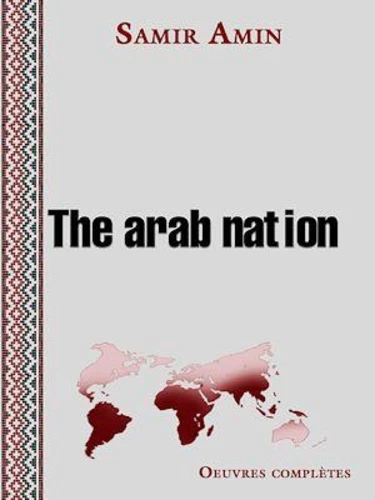The arab nation
Par :Formats :
Disponible dans votre compte client Decitre ou Furet du Nord dès validation de votre commande. Le format ePub est :
- Compatible avec une lecture sur My Vivlio (smartphone, tablette, ordinateur)
- Compatible avec une lecture sur liseuses Vivlio
- Pour les liseuses autres que Vivlio, vous devez utiliser le logiciel Adobe Digital Edition. Non compatible avec la lecture sur les liseuses Kindle, Remarkable et Sony
 , qui est-ce ?
, qui est-ce ?Notre partenaire de plateforme de lecture numérique où vous retrouverez l'ensemble de vos ebooks gratuitement
Pour en savoir plus sur nos ebooks, consultez notre aide en ligne ici
- Nombre de pages337
- FormatePub
- ISBN978-2-37918-346-1
- EAN9782379183461
- Date de parution12/10/2020
- Protection num.Digital Watermarking
- Taille399 Ko
- Infos supplémentairesepub
- ÉditeurNENA
Résumé
The Arab world's encounter with capitalism in the last 100 years has raised basic issues as to the nature of Arab identity. Why did Arab civilisation, which so surpassed feudal Europe, never develop a capitalism of its own? Why did communism fail to find popular roots during the renaissance of Arab nationalism? What role will the Arab nation play in a world dominated by the two superpowers? Taking full account of the differences between the various Arab countries, Samir Amin analyses their transition from a non-feudal tributary mode to state capitalism and the hegemony of a state bourgeoisie.
Nasserism, the Baath, the Arab-Israeli conflict and Sadat's new policies are all explored. This brief history of the Arab people's struggle is both a political pointer to the future and a controversial theoretical innovation.
Nasserism, the Baath, the Arab-Israeli conflict and Sadat's new policies are all explored. This brief history of the Arab people's struggle is both a political pointer to the future and a controversial theoretical innovation.
The Arab world's encounter with capitalism in the last 100 years has raised basic issues as to the nature of Arab identity. Why did Arab civilisation, which so surpassed feudal Europe, never develop a capitalism of its own? Why did communism fail to find popular roots during the renaissance of Arab nationalism? What role will the Arab nation play in a world dominated by the two superpowers? Taking full account of the differences between the various Arab countries, Samir Amin analyses their transition from a non-feudal tributary mode to state capitalism and the hegemony of a state bourgeoisie.
Nasserism, the Baath, the Arab-Israeli conflict and Sadat's new policies are all explored. This brief history of the Arab people's struggle is both a political pointer to the future and a controversial theoretical innovation.
Nasserism, the Baath, the Arab-Israeli conflict and Sadat's new policies are all explored. This brief history of the Arab people's struggle is both a political pointer to the future and a controversial theoretical innovation.





















